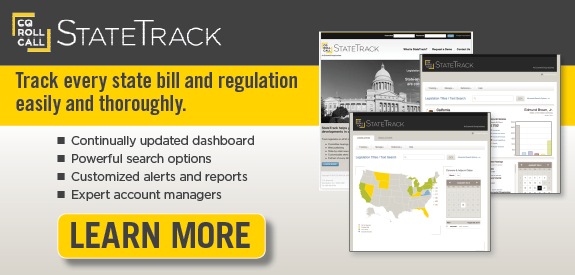 Feds Eye Gulf States’ Offshore Drilling Revenue
Feds Eye Gulf States’ Offshore Drilling Revenue
Under current law, Alabama, Louisiana, Mississippi and Texas are entitled to 37.5 percent of the revenue from drilling in federal waters off their coasts. Interior Secretary Sally Jewell would like to change that — setting the scene for a showdown with congressional Republicans who would like to expand the program nationwide.
“We believe that needs to be re-examined to what is a fair return to the taxpayers across the whole United States,” Jewell told reporters on a conference call, citing the Land and Water Conservation Fund as one of many onshore “opportunities” that would benefit from the offshore revenue.
Jewell’s comments indicate that the administration is likely to oppose new efforts to expand revenue sharing without changes to make it more equitable for inland states.
The amount of revenue up for grabs, which Jewell estimated at more than $3 billion from 2016-25, is significant and prompted outrage from Louisiana’s GOP senators. David Vitter called it “incredibly insulting” while Bill Cassidy, who ousted Landrieu in November, vowed to do everything he can to block Obama’s “raid” on his state’s share.
[Need to track any of these issues? Start Your CQ StateTrack 7-Day Trial in 30 Seconds] States Consider Adopting Tobacco Taxes
States Consider Adopting Tobacco Taxes
Lawmakers in North Dakota, Kansas, Maryland and Ohio are all considering proposals that would raise taxes on cigarettes and other tobacco products. These proposals come as states across the country look for ways to fill funding gaps.
In Ohio — which is not facing a budget shortfall — Republican Gov. John Kasich wants to raise the cigarette tax from $1.25 to $2.25 a pack. He also wants to raise taxes on tobacco products like cigars to 60 percent of wholesale cost, bringing them to the same level. The increases are expected to generate $991 million over two years; $528 million in 2016 and $463 million in 2017.
[The impact of a PL’s implementation reverberates through the states. Stay ahead of every tremor with CQ StateTrack] Low Oil Prices Impact State Budgets
Low Oil Prices Impact State Budgets
Steep declines in oil prices are wreaking havoc on oil-dependent states across the country. Alaska, which relies heavily on petroleum revenue, is facing a budget shortfall of $3.5 billion. But states with low oil production are hoping the dip in prices will bolster their economies. According to the National Conference of State Legislatures:
[Start Your Free Trial to CQ StateReport Today]In Utah, which produces 3.5 percent of the oil Texas does and ranks 11th overall in crude oil production, falling prices at the gas pump are expected to free up disposable income for Utah residents to spend on other things, resulting in “a net positive for the state,” says Andrea Wilko, chief economist for the Legislative Fiscal Analyst Office.
State budgets will benefit from cheaper fuel in other ways as well, from lower operating costs for state motor vehicle fleets to less expensive asphalt for road construction and repairs.
Correction: A previous version of this post mischaracterized Ohio as seeking to impose a cigarette tax to address a funding gap. Ohio currently has a budget surplus of $700 million.
